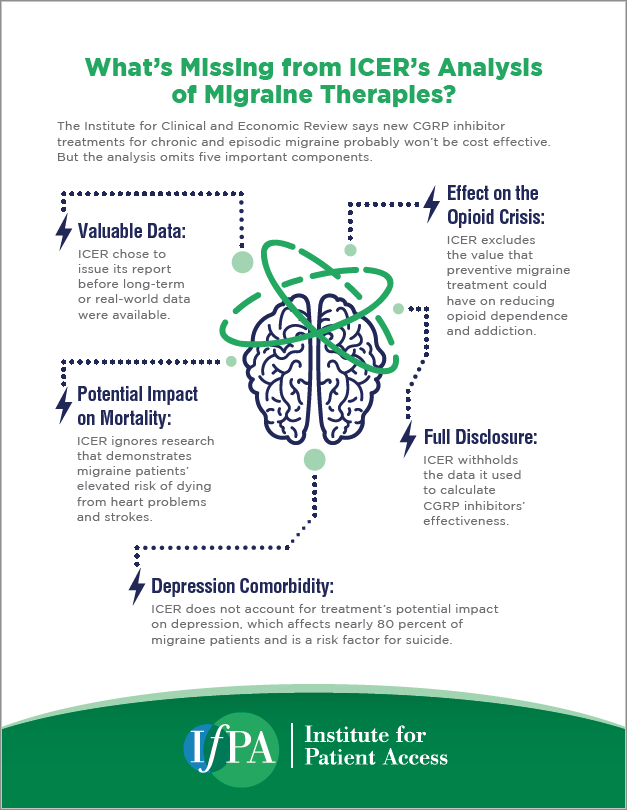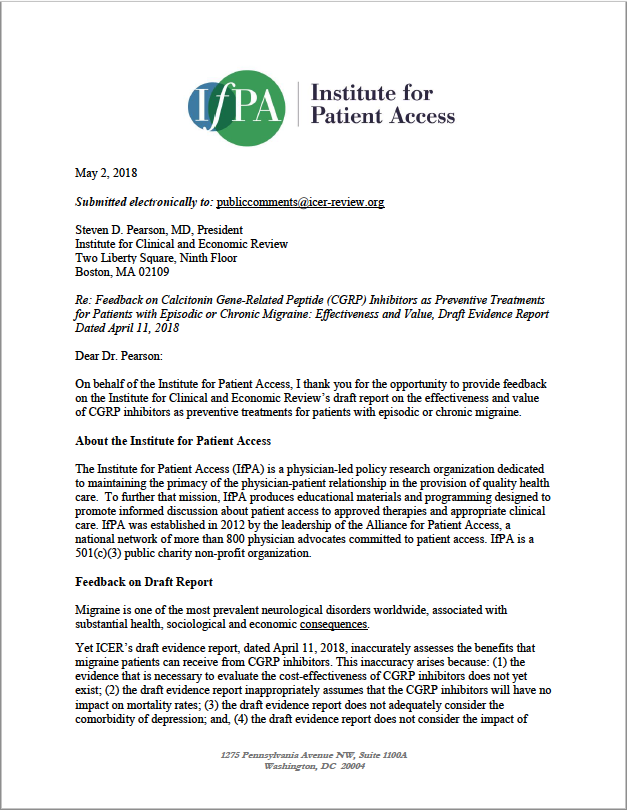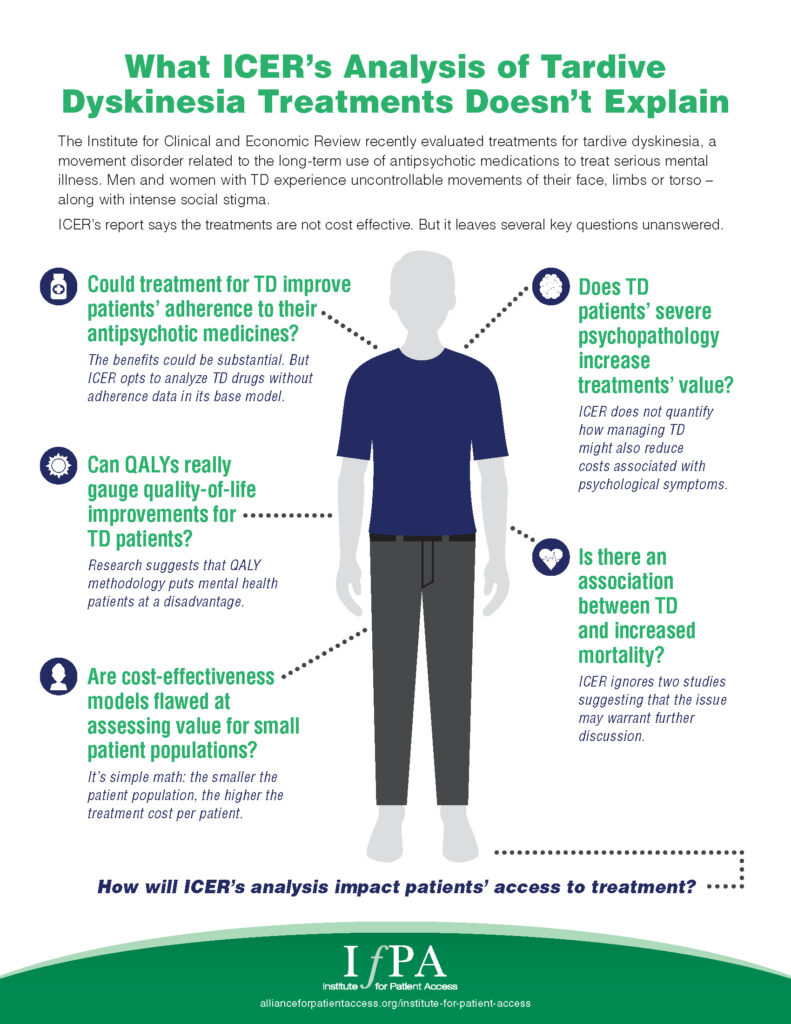What’s Missing from ICER’s Analysis of Migraine Therapies?

The Institute for Clinical and Economic Review says new CGRP inhibitor treatments for chronic and episodic migraine probably won’t be cost effective. But the analysis omits five important components. View the Graphic
Feedback on CGRP Inhibitors as Preventive Treatments for Patients with Migraine

Migraine is one of the most prevalent neurological disorders worldwide, associated with substantial health, sociological and economic consequences. Yet ICER’s draft evidence report, dated April 11, 2018, inaccurately assesses the benefits that migraine patients can receive from CGRP inhibitors. This inaccuracy arises because: (1) the evidence that is necessary to evaluate the cost-effectiveness of CGRP […]
Living with Stigma

Living with a movement disorder means living with stigma. Stares, whispers and pointing are just another part of the disease burden for the millions of Americans with Tourette, essential tremor, tardive dyskinesia, Huntington’s disease or other movement disorders. The stigma can have wide-range effects on a patients’ quality of life. Tammy Dodderidge of the […]
Advocates Push Back on ICER’s Tardive Dyskinesia Report

What’s the value of being able to stop involuntary lip smacking, facial grimacing or torso twitching – and the public stigma they cause?
What ICER’s Analysis of Tardive Dyskinesia Treatments Doesn’t Explain

The Institute for Clinical and Economic Review recently evaluated treatments for tardive dyskinesia, a movement disorder related to the long-term use of antipsychotic medications to treat serious mental illness. Men and women with TD experience uncontrollable movements of their face, limbs or torso – along with intense social stigma.
ICER’s report says the treatments are not cost effective. But it leaves several key questions unanswered.
Feedback on ICER’s Vesicular Monoamine Transporter 2 Inhibitors for Tardive Dyskinesia: Effectiveness and Value report

IfPA is concerned that ICER’s draft evidence report, dated October 2, 2017, undervalues the benefits that tardive dyskinesia (TD) patients can receive from VMAT2 inhibitors. This undervaluation arises because of the reasons described below. 1. The base model does not incorporate the benefit of TD patients’ improved adherence to their antipsychotic medicines. 2. The cost-effectiveness […]
Access Barriers Loom for Movement Disorder Patients

Long-awaited treatment for a movement disorder known as tardive dyskinesia could remain out of reach – unless an upcoming cost-effectiveness analysis acknowledges its value to patients.

